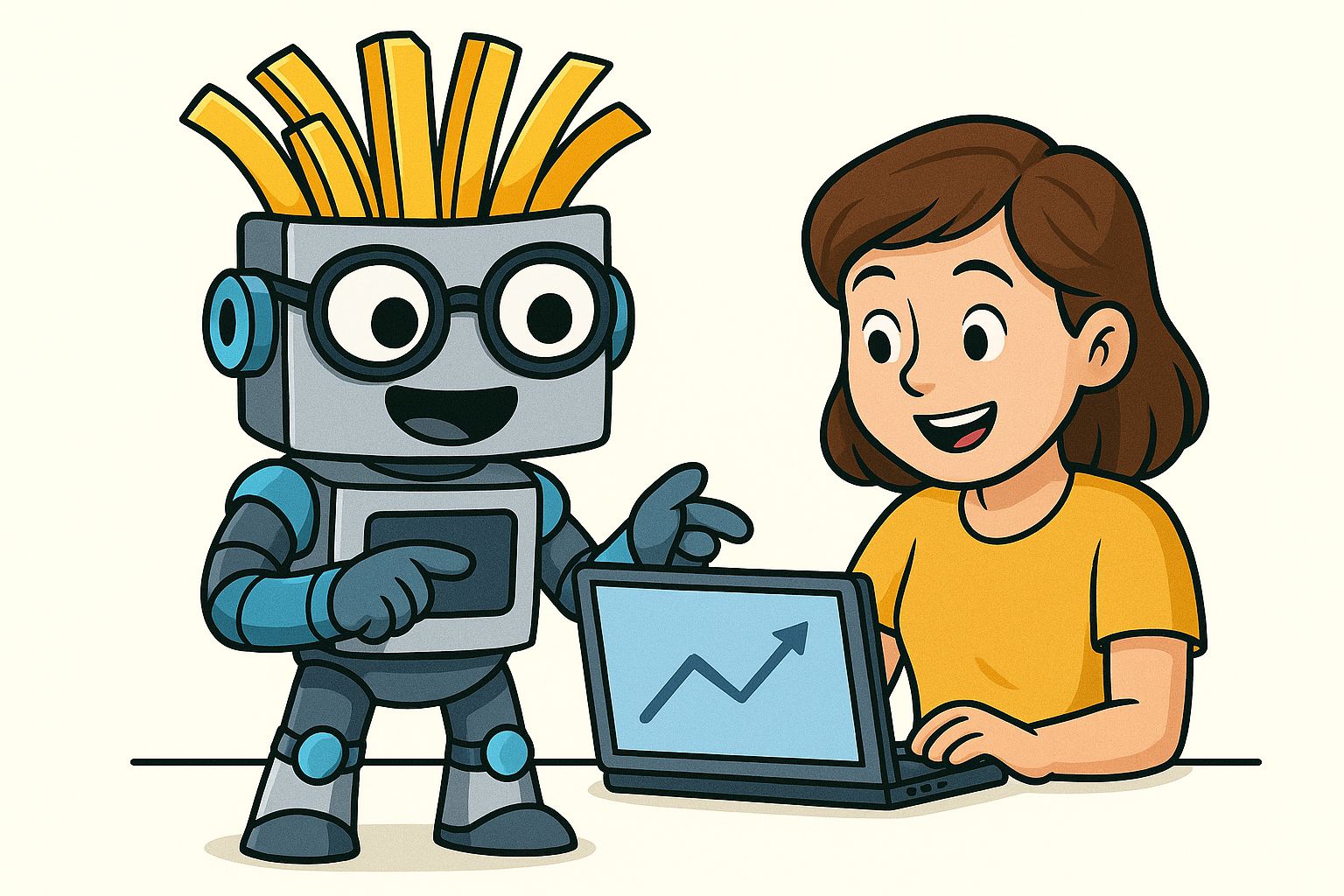
Good morning! Tuesday means coffee, clarity, and a fresh batch of AI to keep you moving. 👊
The back office, built for founders
We’ve worked with over 800 startups—from first-time founders at pre-seed to fast-moving teams raising Series A and beyond—and we’d love to help you navigate whatever’s next.
Here’s how we’re willing to help you:
Incorporating a new startup? We’ll take care of it—no legal fees, no delays.
Spending at scale? You’ll earn 3% cash back on every dollar spent with our cards.
Transferring $250K+? We’ll add $2,000 directly to your account.
🤯 MYSTERY AI LINK 🤯
(The mystery link can lead to ANYTHING AI-related: tools, memes, articles, videos, and more…)
Today’s Menu
Appetizer: AI use spreads at record pace 🦾
Entrée: OpenAI upgrades Codex with GPT-5 👩💻
Dessert: Google’s secret layoffs 🤫
🔨 AI TOOLS OF THE DAY
🛒 Genstore: Launch an AI-powered store with one prompt. → Check it out
✍️ Exaclidraw: A platform to build hand-drawn diagrams. → Check it out
AI USE SPREADS AT RECORD PACE 🦾
What’s up? A new report from Anthropic shows that AI is spreading across workplaces and countries at a pace unmatched by past technologies like electricity, personal computers, or even the internet.
What are the findings?
AI is spreading incredibly fast: In just two years, AI workplace use in the U.S. doubled from 20% to 40%.
People are using AI for more things: Beyond coding, AI is being used for schoolwork, science, and even to complete entire projects.
Rich places use AI the most: Countries like Singapore and Canada, and U.S. areas like Washington, D.C. are far ahead in AI use, while countries like India and Nigeria lag behind.
Businesses lean heavily on automation: 77% of company use cases involve handing entire tasks over to AI, especially in programming and office work.
Price doesn’t matter: Companies care less about cost and more about whether AI can reliably get the job done.
Why should you care? AI usage is spreading faster than any technology in history. However, uneven adoption may amplify global inequality. If richer countries and well-positioned firms capture most of AI’s productivity benefits, the technology could accelerate economic divides. Understanding where and how AI spreads will shape who gains—and who gets left behind—in the next era of technological change.
OPENAI UPGRADES CODEX WITH GPT-5 👩💻
What’s new? OpenAI has released GPT-5-Codex, a version of GPT-5 designed specifically for real-world software engineering inside Codex.
How does it work? GPT-5-Codex is trained to handle everything from writing code and adding features to debugging, refactoring, and conducting code reviews. Unlike its general-purpose predecessor, it adapts how much time it spends on a task—responding quickly for small fixes while powering through hours-long projects like large-scale refactors. Codex can now run in your terminal, IDE, GitHub, and in the ChatGPT iOS app. This makes it a flexible partner for both quick coding help and deep, independent engineering work.
Why does this matter? Developers gain a powerful teammate that not only speeds up coding but also improves reliability and safety. By catching serious issues early and working seamlessly across environments, GPT-5-Codex helps teams ship faster, reduce risk, and focus their energy on building new features rather than fixing broken ones.
GOOGLE’S SECRET LAYOFFS 🤫
What happened? More than 200 contractors who worked on improving Google’s AI tools, including Gemini and AI Overviews, were abruptly laid off amid disputes over pay and working conditions.
Want the details? These contractors, employed by outsourcing firm GlobalLogic and others, were responsible for rating and refining AI outputs—essentially teaching Google’s systems to respond more accurately and naturally. Many of these “super raters” held advanced degrees and were tasked with editing chatbot answers, testing prompts, and reviewing search summaries. Workers say the layoffs came as they raised concerns about low pay, lack of security, and poor management tactics.
Why is this significant? AI may seem fully automated, but it still relies on thousands of human workers behind the scenes. These layoffs reveal the hidden labor processes shaping the technology millions depend on. It also shows how big tech companies are prioritizing AI products over a healthy human workplace.
Wall Street has Bloomberg. You have Stocks & Income.
Why spend $25K on a Bloomberg Terminal when 5 minutes reading Stocks & Income gives you institutional-quality insights?
We deliver breaking market news, key data, AI-driven stock picks, and actionable trends—for free.
Subscribe for free and take the first step towards growing your passive income streams and your net worth today.
Stocks & Income is for informational purposes only and is not intended to be used as investment advice. Do your own research.
HAS AI REACHED SINGULARITY? CHECK OUT THE FRY METER BELOW:
What do ya think of this latest newsletter?
Your feedback on these daily polls helps us keep the newsletter fresh—so keep it coming!






